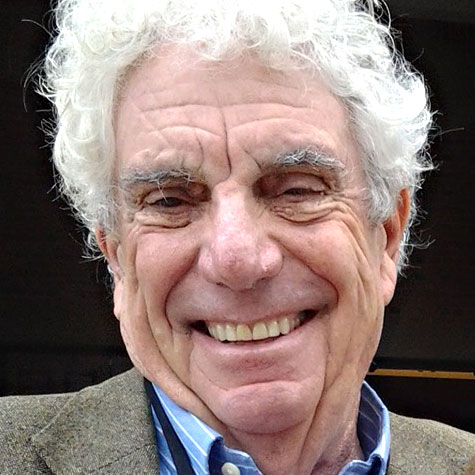Zev Yaroslavsky’s latest nation-building assignment wasn’t easy. Dispatched to Nigeria as part of an international corps of election observers, he checked on polling places during elections this month in a nation better known for ethnic violence and corruption than orderly changes in government.
I talked to the Los Angeles County supervisor on the phone last week as the United States was engaged in doubtful efforts to install some form of democracy in Afghanistan, Iraq and Libya and is hoping for democratic regimes in Egypt, Tunisia, Yemen and Syria.
Yaroslavsky has served as an international election observer for the past several years, an assignment given him by the Washington-based National Democratic Institute. He has learned something about trying to plant democratic institutions in unwilling nations. He previously served in Romania, Mexico and Ukraine.
From those experiences, he has a realistic view of the process of building democratic nations.
“A free and transparent election does not in itself mean you are living in a democracy,” he said. “The institutions that protect democracy, the rule of law, have a great trouble taking root when people are starving.
“It’s not enough to have a free and open election if the person you are electing is becoming part of a government that is corrupt and insensitive to the needs of the people. Once the election is over, the political and social institutions that protect [the results of] that vote are as critical as the election itself.”
That’s a major challenge in Nigeria. The nation is one of the world’s largest oil producers, but, a BBC analysis noted, “Few Nigerians, including those in oil-producing areas, have benefited from the oil wealth.” Nigeria is the United States’ fourth-largest source of imported oil, ranking below Canada, Mexico and Saudi Arabia.
Yaroslavsky observed Nigeria’s national assembly elections April 9 and then returned to Los Angeles. Later in the month, President Goodluck Jonathan was elected to a full term in a contest marked by a sharp division between the Muslim north and the Christian south. Supporters of the loser, Muhammadu Buhari, who is popular in the north, rioted afterward. The Web site allAfrica.com reported 121 people were killed and hundreds injured in post-election violence.
When Yaroslavsky and others on the observer team met before scattering throughout the country, they were wary of the outcome. And Election Day, he wrote in his blog, “started ominously.”
“The night before, a terrorist bomb exploded in the city of Suleja, 12 miles from the nation’s capital, Abuja. At least 13 people were killed. There were several other incidents Friday night that were obviously designed to disrupt the election.” He added, “It didn’t work.”
But although “the prospects of a successful democratic election are very slim … what happened in this election, if you judge by what Nigeria has had over the last 12 years, was a dramatic improvement.”
As for himself, Yaroslavsky found the work exhausting. He wrote in his blog, “It took hours in the a.m. for people to check in, and then several more hours in the p.m. for voters to cast their ballots. All voting was outdoors, and it was hot and humid. I was wiped out, and I had an air-conditioned car to which to escape. I can’t imagine what women with babies on their backs were going through, standing for hours at a time. These waits created some episodic tension.”
In the end, Yaroslavsky felt the effort was more than worthwhile: “On the whole, the consensus of opinion of all the observation groups was that the will of the Nigerian people was represented in this election.”
While watching the voting in sweltering heat, he was impressed by the voters. The complicated Nigerian election procedures require them to sign up, and then wait to vote. He said they stood “for five hours outdoors … in 95 degree heat and 97 degree humidity. … Here were these women, many with babies on their backs, standing for hours at a time just to cast their vote, and many stayed for the count.”
Next up for Yaroslavsky is the decision on whether he will run for mayor of Los Angeles in 2013. Even though the election is far away, politicians, their fundraisers and campaign managers are already at work.
The others interested in the race are City Controller Wendy Greuel, Councilwoman Jan Perry, Council President Eric Garcetti, former mayoral aide and businessman Austin Beutner, developer Rick Caruso and state Sen. Alex Padilla. Yaroslavsky is best known from his years as a member of the city council and the board of supervisors. He’s also part of the Westside-West Valley Jewish community, which should help with votes and fundraising.
“I’m looking at it very seriously,” Yaroslavsky said. “I’ll make a decision by this summer. I am doing my due diligence, talking to my supporters. It’s an important election. The city is at a crossroads.“
If he runs, it sounds as if Yaroslavsky will run against the city hall insiders. Years ago, he was once one of them but most — if not all — of his old colleagues are gone.
“City hall is like summer camp,” he said. “You go to camp and leave reality. It’s become surreal and unreal.”
A mayoral election would be more peaceful than the one he observed in Nigeria. But, in a much more mild way, the challenge is the same — campaigning among many ethnic and economic groups, all of them convinced they are right.
Bill Boyarsky is a columnist for The Jewish Journal, Truthdig and L.A. Observed, and the author of “Inventing L.A.: The Chandlers and Their Times” (Angel City Press).























 More news and opinions than at a Shabbat dinner, right in your inbox.
More news and opinions than at a Shabbat dinner, right in your inbox.